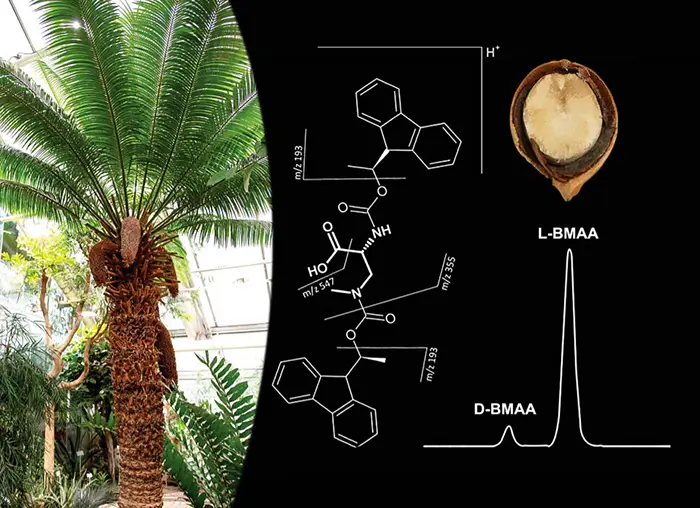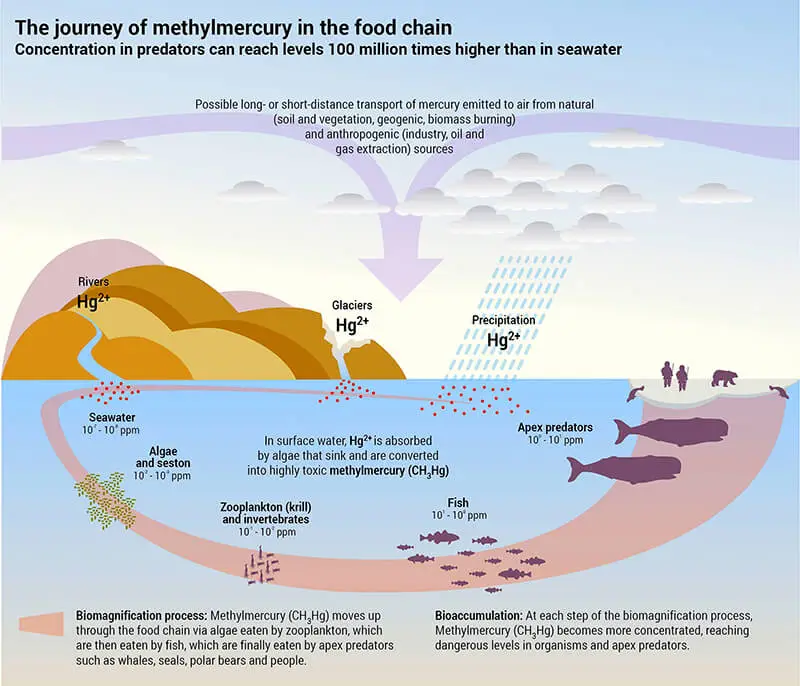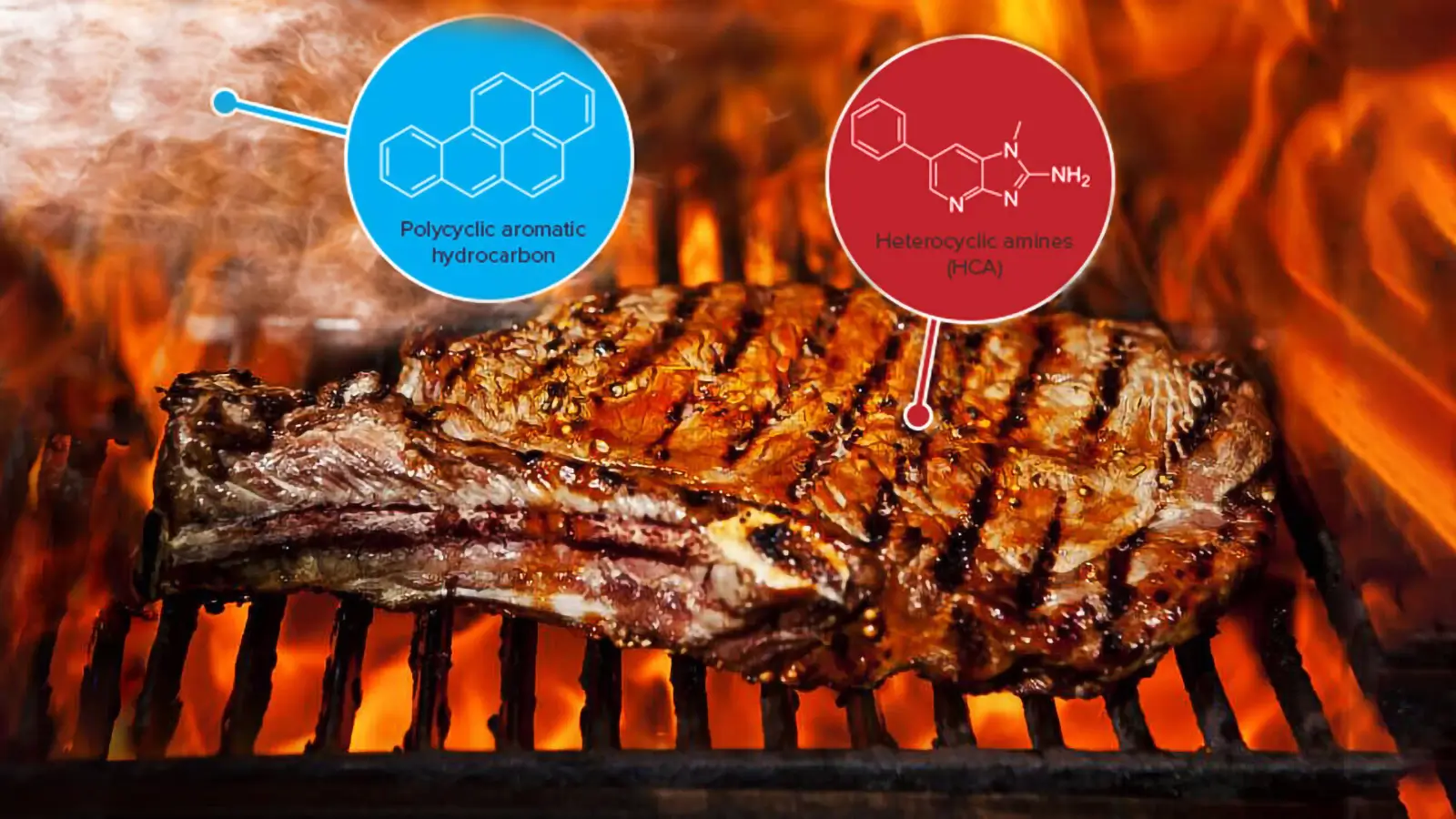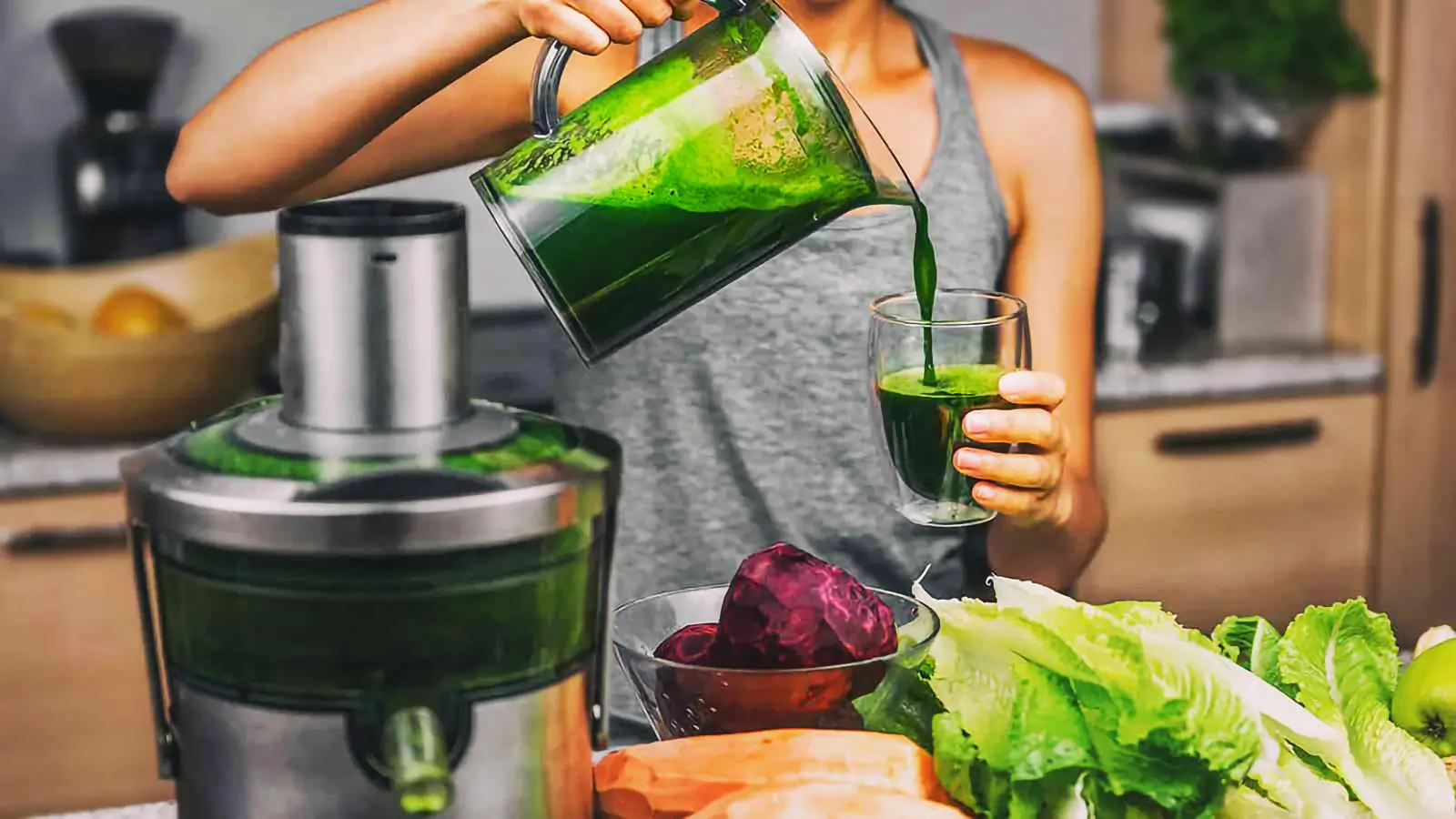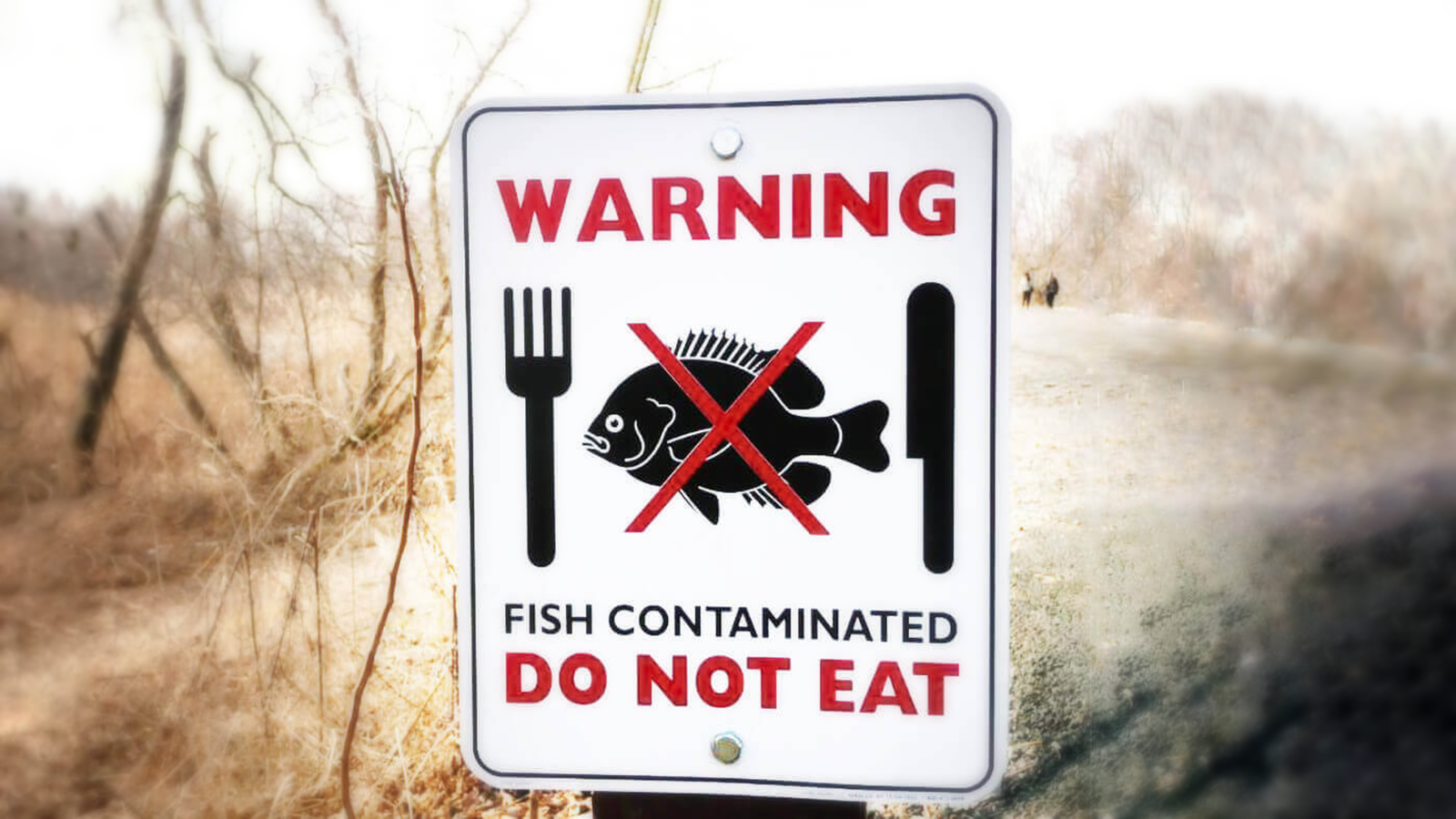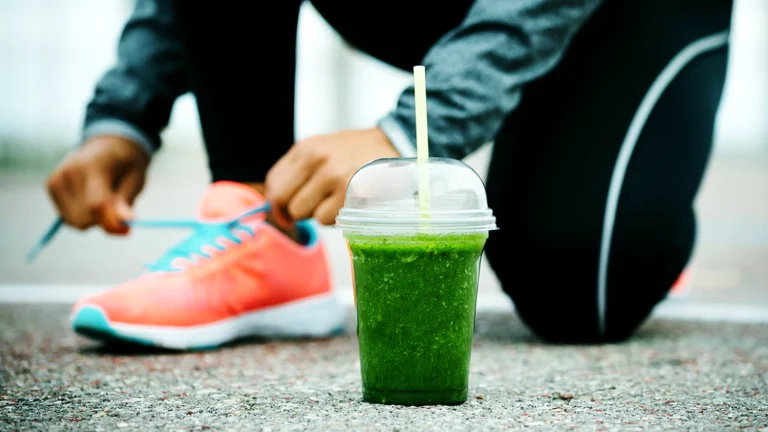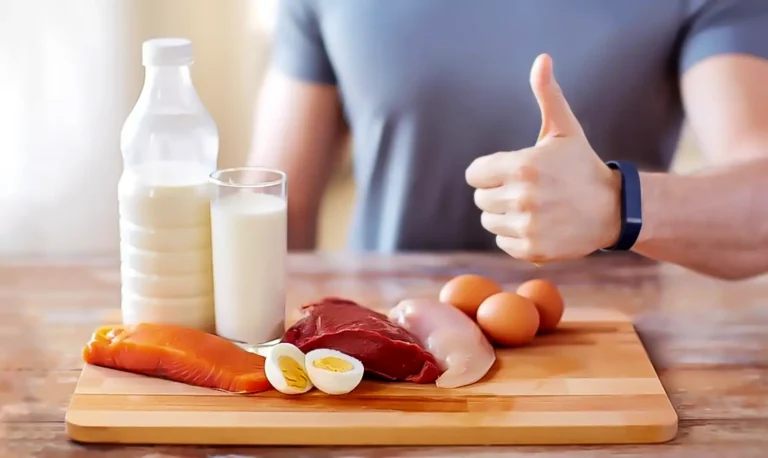Esclerose Lateral Amiotrófica- Proliferação de Algas Cianobactérias e Exposição a BMAA na Dieta
Abundância de nutrientes criados pelo escoamento leva a florações excessivas de algas. As algas excretam potentes neurotoxinas responsáveis pela Esclerose Lateral Amiotrófica (ALS).
Milos Pokimica
Escrito por: Milos Pokimica
Revisto Clinicamente Por: Dr. Xiùying Wáng, M.D.
Actualizado em 7 de Maio de 2023A esclerose lateral amiotrófica (ELA, doença de Lou Gehrig) é uma das piores doenças que se pode ter. Atualmente, não há cura nem tratamento para ela.
Os fertilizantes sintéticos criam muitos problemas. Os fertilizantes infiltram-se em cursos de água, rios e lagos e perturbam o equilíbrio dos ecossistemas aquáticos. Isto está a criar um excesso de nutrientes, incluindo azoto e fósforo, na água. Isto é alimento tanto para as plantas marinhas como para as culturas de terra. Uma abundância de nutrientes criada por escorrência conduz a florações excessivas de algas. Florescimentos excessivos de algas esgotam depois a água de oxigénio criando zonas mortas oceânicas. Depois, quando estas algas começam a decompor-se, surgem problemas de qualidade da água e o resultado são peixes mortos e outros organismos aquáticos. Este processo é chamado eutrofização.

Uma das zonas mortas mais significativas a nível mundial pode ser encontrada no Golfo do México, começando no delta do rio Mississippi.
Esta única coisa deve ser razão suficiente para deixar de comer qualquer coisa do oceano inteiro no momento presente.
Apenas esta forma de desequilíbrio na natureza, sob a forma de a proliferação de algas pode matá-lo. Não estou a brincar. O que não compreende é que estas algas não são apenas vegetais marinhos que crescem em excesso na água do mar devido ao escoamento de fertilizantes e depois morrem. Algumas delas, ou melhor, a maioria delas, são inofensivas e seguras e não causam danos a longo prazo, exceto nas zonas mortas, mas outras não são seguras porque criam e excretam algumas das neurotoxinas mais potentes conhecidas pelo homem.
Quando começam a crescer em excesso devido a todo o escoamento de azoto da terra, florescem e excretam enormes quantidades destas neurotoxinas para a água. Estas toxinas que são quimicamente estáveis não se degradam mas começam a bioacumular como qualquer outra coisa. Estas toxinas causam danos a qualquer exposição. Se o nível de exposição for baixo, elas apenas agravarão a degradação geral do cérebro e contribuirão para o seu encolhimento com o envelhecimento, mas se as toxinas se acumularem acima do limite aceitável, surgirá a esclerose lateral amiotrófica (ELA, doença de Lou Gehrig).
Stephen Hawking é um exemplo disso. Hawking tinha uma forma de esclerose lateral amiotrófica (ELA). A esclerose lateral amiotrófica (ELA) é comumente conhecida como doença de Lou Gehrig. A esclerose lateral amiotrófica (ELA) é uma doença que causa a degradação dos neurónios motores e, com o tempo, paralisa completamente o paciente, levando eventualmente à insuficiência respiratória. Ela ataca apenas os neurónios motores, de modo que as capacidades mentais do paciente permanecem intactas e, na maioria dos casos, a morte ocorre após três anos, quando o paciente não consegue mais respirar por conta própria. Não há cura para esta doença. A esclerose lateral amiotrófica (ELA) atinge pessoas anteriormente saudáveis de forma aparentemente aleatória. A esclerose lateral amiotrófica (ELA) é uma doença progressiva. Isso significa que só pode piorar com o tempo e geralmente mata em 2 a 5 anos após os primeiros sinais da doença. Cerca de 10% das pessoas com ELA sobrevivem pelo menos dez anos. Stephen Hawking foi a pessoa que viveu mais tempo na história com esclerose lateral amiotrófica (ELA, doença de Lou Gehrig)..
Quando o desafio do balde de gelo se tornou viral, muitas pessoas ouviram falar desta doença, e ela tornou-se uma forma de campanha de sensibilização dos meios de comunicação social que se transformou num fenómeno nacional. Agora é bom estar lá para as pessoas necessitadas, mas isso apenas irá bombear a nossa própria imagem de auto-estima. Não ajudaria a prevenir ou a baixar a taxa da doença. A verdadeira consciencialização é algo completamente diferente. Se as pessoas quisessem fazer a diferença e aumentar a consciencialização, deveriam fazer um desafio com um balde de água verde em vez de um balde de gelo. A esclerose lateral amiotrófica (ELA) é mais comum do que reconhecida. Temos 1 em 400 riscos de a obter, e isto a um nível semelhante de esclerose múltipla. Façamos uma verdadeira consciencialização.
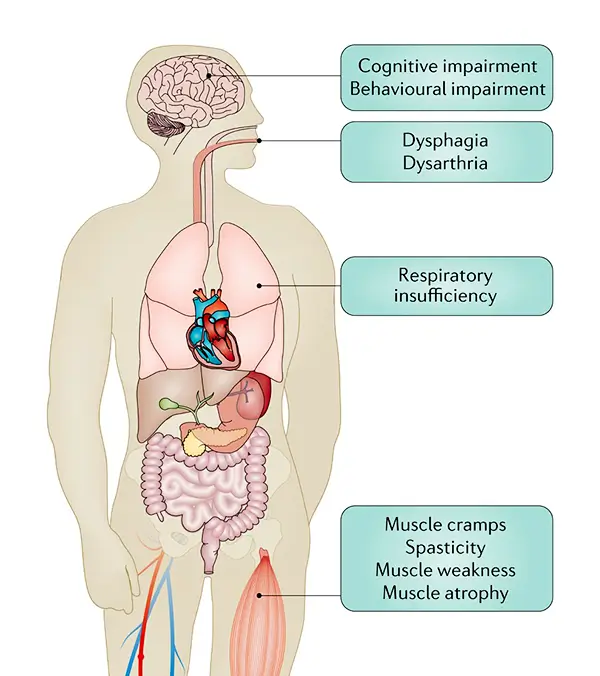
Em 1944 as forças norte-americanas tinham reconquistado Guam aos japoneses. Inicialmente, os Estados Unidos ocuparam Guam a partir do povo Chamorro a 21 de Junho de 1898. E actualmente está sob o território dos EUA. É uma pequena ilha no meio do Oceano Pacífico com uma grande base militar. Após a guerra, um neurologista da marinha notou que o povo Chamorro local tem uma alta taxa da forma muito mortal da estranha doença neurodegenerativa com sintomas de demência, tremores, paralisia, e morte. Em algumas povoações de Guam 1 em cada 3 pessoas morreram. A doença foi denominada complexo de esclerose lateral amiotrófica - parkinsonismo/demência (ALS-PDC), conhecido localmente como lytico-bodig. Não sabiam o que era, pelo que apenas a descreveram como amiotrófica (atrofia dos músculos), lateral (do latim lateralis, significando para o lado) e esclerose (grego σκληρός hard) é o enrijecimento de uma estrutura. A taxa de ALS em Guam foi 50-100 vezes a incidência de ALS em todo o mundo. Após a exclusão sistemática e análise estatística, verificou-se que sementes específicas da árvore Cycad Cycas micronesica na dieta da população local eram o principal desencadeador da doença. A análise bioquímica associou o aminoácido neurotóxico não proteico, beta-metilamino-L-alanina (BMAA), como uma causa primária da doença.
Suspeitou-se que as cicadáceas eram suspeitas devido à utilização de farinha de semente na cozedura, juntamente com os repousos de ataxia do gado depois de comerem da mesma. E, de facto, foi nela encontrada neurotoxina BMAA. A descoberta foi apenas uma parte da investigação sobre a doença conhecida como lathyrism. O lathyrism está principalmente presente na Índia, China, e Médio Oriente. Tem sintomas muito semelhantes, como a paralisia progressiva das pernas. Estudos posteriores relacionaram o lathyrism com o consumo de certas espécies de leguminosas que continham o composto ß-N-oxalilamino-L-alanina (BOAA). O lathyrism foi a razão pela qual os investigadores testaram primeiro as sementes de cycad para BOAA. Quando as sementes não mostraram concentrações de BOAA muito semelhantes tinham sido encontradas com um grupo metilo em vez de um grupo oxalil-BMAA. Portanto, é quimicamente muito semelhante a uma neurotoxina que apenas tem um grupo metilo em vez de um grupo oxalilo-BMAA. Estudos subsequentes em ratos e macacos mostraram o mesmo resultado em ambos os casos. O BMAA é tóxico para os neurónios. No entanto, houve uma grande diferença. A exposição alimentar causou sintomas imediatos em ratos, enquanto que o ALS-PDC se desenvolveu anos ou mesmo décadas após a exposição inicial. Um outro problema foi a dose.
Nos anos 80, o neurotoxicologista Peter Spencer fez um estudo e relatou os resultados da paralisia em macacos alimentados com BMAA. Contudo, mais uma vez a dose utilizada foi muito mais elevada do que a dose a que as pessoas que sofriam de esclerose lateral amiotrófica (ALS) foram expostas pela farinha de cycad. As pessoas tinham de comer quilos para ingerir uma dose comparável. A análise das concentrações de BMAA nas sementes de cycad por vários grupos de investigação salientou que a toxina estava presente nas sementes em baixas concentrações. Investigações subsequentes confirmaram que a maioria das neurotoxinas, cerca de 85% foram removidas da farinha de cycad durante o processamento. Houve um cálculo de que as pessoas teriam de comer milhares de quilos do material todos os dias para chegarem a níveis tóxicos de exposição. No final, toda a teoria foi abandonada.
Depois, no final dos anos 90, o famoso neurologista Oliver Sacks (aquele que escreveu Awakenings, que foi adaptado para um filme nomeado para o Oscar em 1990, estrelado por Robin Williams e Robert De Niro) e o seu colega Alan Cox fizeram algumas descobertas e ressuscitaram a teoria do BMAA. O povo Chamorro local, agora com conhecimentos da investigação que tinha sido feita, começou a usar algumas tácticas como precaução. Fizeram tortilhas a partir de farinha de sementes de cycad. Contudo, antes de utilizarem as sementes, lavaram-nas repetidamente para remover as toxinas e depois deram a água às galinhas para beber. Se as suas galinhas permaneceram vivas depois de beberem a água de lavagem, as pessoas consideraram as sementes seguras para moer e comer. Contudo, comiam também outros animais selvagens que caçavam e alguns deles também se alimentavam de sementes de cycad. Por exemplo, para os morcegos da fruta e porcos selvagens, os alimentos comuns eram as sementes de cicadáceas. Oliver Sacks teve a ideia de que não é a semente que é problemática, mas os animais que as pessoas consomem porque é apenas mais um caso de bioagnificação.
Uma das refeições típicas locais era Mariana raposas voadoras cozidas em creme de coco e comidas inteiras com pele, ossos, cérebro, e tudo. Sacks and Cox em 2002 teorizou que estes animais que se alimentam das sementes no tempo criam um reservatório neurotóxico de BMAA nos seus tecidos cerebrais. Como os seus cérebros também eram comidos regularmente pelos Chamorros, a exposição alimentar crónica tinha criado o reservatório de BMAA no seu próprio cérebro, levando, após um período de atraso, a um derretimento neuronal e ao desenvolvimento de esclerose lateral amiotrófica (ALS). O consumo de raposas voadoras guamanesas que se alimentavam das cycadáceas era fundamental para a tradição Chamorro. Além disso, a correlação estatística mostrou que o declínio da população de raposas voadoras devido à caça excessiva correlacionada com a queda no número de casos de ALS/PDC apresentados em Guam. Cox analisou a pele de espécimes de raposas voadoras de museus preservados (recolhidos cinco décadas antes) e constatou que as concentrações de BMAA eram extremamente elevadas.
O tempo de latência é um dos fatores que dificultou o rastreamento dessas doenças. Com o tempo de latência, as pessoas tendem a se expor completamente à toxina sem perceber nada de errado e, quando a concentração dessa toxina se acumula e a doença apresenta os primeiros sintomas, já é tarde demais. O encerramento definitivo do tema foi feito com autópsias nos cérebros de chamorros que morreram de ELA/PDC, nas quais foram encontrados altos níveis de BMAA (1). Treze indivíduos canadianos não apresentavam níveis detectáveis de BMAA. Eram apenas indivíduos que morreram de causas não relacionadas com neurodegeneração. No entanto, quando o BMAA foi medido, também foi encontrado nos cérebros de todos os pacientes canadianos com doença de Alzheimer. Mas espere um segundo. Essas pessoas estavam no Canadá, não em Guam. Elas não comiam raposas voadoras nem sementes da árvore Cycat.
A verdadeira história aqui é que a neurotoxina BMAA também não foi produzida pela árvore. Foi produzida pelas cianobactérias Nostoc, simbiontes radiculares das cicadáceas. As bactérias que vivem nas raízes da árvore produziram a toxina. Quando a toxina é absorvida pelas raízes, será passada para as sementes, depois para os morcegos que se alimentam delas e depois para as pessoas.
A implicação desta descoberta científica é aterradora. Se as cianobactérias produzirem estas neurotoxinas, terão ramificações maciças para a saúde pública à escala global. As cianobactérias são ubíquas e podem ser encontradas em quase todos os habitats aquáticos ou terrestres. São literários em todo o lado, desde solos húmidos, água doce, oceanos, fontes termais, rochas e solos nus, rochas no deserto, e até rochas antárcticas. O nome cianobactérias vem da cor da bactéria (grego: κυανός. Kyanós significa azul). Conhece estas bactérias como algas azuis-esverdeadas, que florescem do escoamento de fertilizantes.
Cox encontrou a presença de BMAA na maior parte das variedades de cianobactérias testadas de todo o globo. Não se trata apenas da estirpe Guam Nostoc, são todas as estirpes desta alga verde-azul ou, para ser mais preciso, 95% de todas as estirpes produzem BMAA. Devido ao enorme florescimento de algas, o nível de BMAA hoje precisa de ser medido e estudado. Houve estudos que mediram os níveis de BMAA em alguns dos organismos tróficos superiores. Foram detectadas concentrações elevadas em várias espécies de peixes, mexilhões, ostras e plâncton, indicando assim que a população humana global está em alto risco de bioacumulação deste composto neurotóxico através da cadeia alimentar em todo o mundo.
Até hoje, não há consenso científico de que a exposição ao BMAA através do consumo de alimentos contaminados possa desempenhar um papel causal em várias condições patológicas neurodegenerativas. Em alguns estudos, dependendo dos métodos utilizados, não foi encontrado BMAA no tecido cerebral de pacientes com Alzheimer, enquanto em outros estudos ele foi encontrado. Os níveis medidos de BMAA no cérebro podem não significar causalidade; proximidade não é causalidade. Algumas das evidências mais convincentes foram apresentadas no Simpósio Internacional sobre ELA/Doença do Neurónio Motor (MND) em 2011. Houve uma pesquisa que mostrou que o BMAA não é encontrado no tecido cerebral em concentrações mais elevadas porque é incorporado diretamente na própria célula nervosa. Foi demonstrado que o BMAA é incorporado nas proteínas das células nervosas, causando o desdobramento incorreto das proteínas e, por fim, a morte celular. Dunlop e Rodgers relataram que a enzima tRNA synthetase para o aminoácido serina capta por engano o BMAA pensando que é sereno e depois incorpora-o em proteínas in vitro. Esta substância é nada mais nada menos que puro mutagénico. A autofluorescência consequente indicou que as proteínas se dobraram incorretamente e as células morreram. O que podemos afirmar com certeza é que o BMAA pode não causar a doença de Alzheimer ou Parkinson por si só, mas agrava a condição e causa esclerose lateral amiotrófica (ELA). Agora, para compreender totalmente a história do BMAA, uma vez que muitas pessoas em todo o mundo podem estar expostas a ele, também podemos perguntar: por que algumas pessoas sofreram efeitos neurodegenerativos e outras não?
Cox suspeitou que a vulnerabilidade pudesse refletir uma interação entre genes e ambiente. Se essa única toxina ambiental desempenha um papel em diferentes doenças, como Parkinson, ELA, Alzheimer e talvez algumas outras, isso poderia representar uma interação entre genes e ambiente com base na resiliência genética individual. No entanto, ninguém ainda investigou uma base genética para a vulnerabilidade ao BMAA. É a mesma história se repetindo. Os seres humanos foram expostos a essa toxina natural durante a evolução normal. O que está a fazer com que a prevalência dessa doença aumente são as proliferações de algas causadas por níveis anormais de nutrientes provenientes de campos fertilizados, resíduos animais, esgoto e erosão do solo na água, que acabam por elevar os níveis de algas verde-azuladas a níveis anormais. Algumas pessoas têm uma genética melhor para lidar com isso, outras podem ser mais sensíveis. Além disso, depende da quantidade frutos do mar come. A causa desta doença não é hereditária. É uma desadaptação ao nosso ambiente actual. Esta toxina foi encontrada em peixes de água doce, peixes de água salgada e crustáceos e moluscos. Alguns dos peixes têm níveis de BMAA comparáveis aos encontrados nos morcegos de fruta em Guam. Não posso dar estimativas aqui porque a concentração de BMAA varia em função do local de amostragem. Algumas espécies de caranguejo, por exemplo, podem ser altas ou baixas no nível de toxicidade, dependendo se as suas algas florescem ou não na água. Quanto mais florescem, mais toxinas. No entanto, as toxinas acabam por se espalhar por todo o lado. Isto poderia explicar a aglomeração de ALS em populações que vivem à volta de lagos, por exemplo. Vários casos de ALS foram diagnosticados entre residentes de Enfield, New Hampshire, uma cidade que engloba um lago com uma história de cianobactérias e florescimento de algas. Houve seis casos de ALS diagnosticados entre 1975 e 1983 em residentes de longa duração de Two Rivers, uma pequena comunidade de Wisconsin. A probabilidade de isto ter ocorrido devido ao acaso era inferior a 0,05%.
As espécies de cianobactérias, dependendo do tipo, têm a capacidade de produzir um conjunto diferente de metabolitos, não apenas BMAA que são também neurotoxinas, hepatotoxinas, ou dermatoxinas. O BMAA não tem de nos matar para ser mau. Pode causar danos neurológicos e aumentar a carga tóxica global nos nossos corpos e ter efeitos sinérgicos com mercúrio e chumbo e todas as outras neurotoxinas para melhorar declínio cognitivo.
No final, pode não ser a única coisa que pode desencadear a esclerose lateral amiotrófica (ELA). BOAA desencadeia o lathyrism, por exemplo. É o mesmo tipo de morte neuronal que na esclerose lateral amiotrófica (ALS). Os veteranos americanos têm mais casos de esclerose lateral amiotrófica (ALS) por uma razão desconhecida. A situação em Guam, na última década, é promissora. Os seus níveis de esclerose lateral amiotrófica (ELA) são significativamente mais baixos do que no passado, mas agora sabem qual foi a causa principal desta epidemia de doença neurológica que tiveram de enfrentar. E sem a ilha de Guam, o resto do mundo continuará a comer marisco pensando que é saudável e seguro. O problema com a natureza é que é difícil para a ciência cada molécula que existe. Existem milhares de poluentes naturais como o BMAA na natureza. Alguns deles podem até ser sexualmente transmitidos como a toxina da ciguatera que, uma vez mais, é produzida por algas e acumulada na cadeia alimentar, e, uma vez mais, é termicamente e quimicamente estável. Provoca pesadelos literalmente com dor e fadiga e uma sensação de frio ardente. A inversão da sensação de temperatura, o calor parece frio, e o frio parece quente. Pode durar anos e em doses baixas apenas causa fadiga. A história de um jantar romântico com um pargo vermelho numa marinada grega com vinho. Férias de sonho no paraíso tropical transformando-se em sexo frio e doloroso com pesadelos. Alguns dos casos de síndromes de fadiga crónica são na realidade envenenamento por peixe ciguatera. Em algumas pessoas, pode causar sintomas recorrentes durante períodos de stress, perda de peso, exercício, ou uso excessivo de álcool, mesmo após 25 anos de exposição inicial.
Devido a toda a poluição, a maioria dos peixes de hoje têm infecções tanto de bactérias como de parasitas. Nunca coma nada cru da água em toda a sua vida. Esqueça o sushi. As mudanças no equilíbrio da natureza têm consequências. Tudo o que não é natural, e quando digo isto, refiro-me a tudo o que os nossos antepassados hominídeos não fizeram, ou foram expostos, é promotor de doenças com potencial para exposição a uma quantidade desconhecida de toxinas não identificadas. Se houvesse oceanos limpos e imaculados a comer peixe predador ainda é uma má ideia, e comer muito peixe não é natural. O peixe é carne que promove a inflamação, mesmo sem toda a poluição.
Referências:
Passagens seleccionadas de um livro: Pokimica, Milos. Go Vegan? Revisão da Ciência-Parte 2. Kindle ed., Amazon, 2018.
- Murch, Susan J et al. "A mechanism for slow release of biomagnified cyanobacterial neurotoxins and neurodegenerative disease in Guam." Actas da Academia Nacional de Ciências dos Estados Unidos da América vol. 101,33 (2004): 12228-31. doi:10.1073/pnas.0404926101
- Bradley, Walter G, e Deborah C Mash. "Para além de Guam: a hipótese das cianobactérias/BMAA sobre a causa da ELA e de outras doenças neurodegenerativas". Esclerose lateral amiotrófica: publicação oficial do Grupo de Investigação em Doenças do Neurónio Motor da Federação Mundial de Neurologia vol. 10 Suppl 2 (2009): 7-20. doi:10.3109/17482960903286009
- Chiu, Alexander S et al. "Será que o ácido α-amino-β-metilaminopropiónico (BMAA) desempenha um papel na neurodegeneração?". Revista internacional de investigação ambiental e saúde pública vol. 8,9 (2011): 3728-46. doi:10.3390/ijerph8093728
- Brand, Larry E et al. "Cyanobacterial Blooms and the Occurrence of the neurotoxin beta-N-methylamino-L-alanine (BMAA) in South Florida Aquatic Food Webs." Algas nocivas vol. 9,6 (2010): 620-635. doi:10.1016/j.hal.2010.05.002
Publicações Relacionadas
Você tem alguma dúvida sobre saúde e nutrição?
Eu adoraria ouvir de você e respondê-las em meu próximo post. Agradeço sua contribuição e opinião e espero ouvir de você em breve. Eu também convido você a siga-nos no Facebook, Instagram e Pinterest para mais conteúdos sobre dieta, nutrição e saúde. Pode deixar um comentário e ligar-se a outros entusiastas da saúde, partilhar as suas dicas e experiências e obter apoio e encorajamento da nossa equipa e comunidade.
Espero que este post tenha sido informativo e agradável para si e que esteja preparado para aplicar os conhecimentos que aprendeu. Se achou este post útil, por favor partilhá-lo com os seus amigos e familiares que também possam beneficiar com isso. Nunca se sabe quem poderá precisar de alguma orientação e apoio no seu percurso de saúde.
– Você Também Pode Gostar –

Aprender Sobre Nutrição
Milos Pokimica é médico de medicina natural, nutricionista clínico, escritor de saúde e nutrição médica, e conselheiro em ciências nutricionais. Autor da série de livros Go Vegan? Revisão de Ciênciaopera também o website de saúde natural GoVeganWay.com
Medical Disclaimer
GoVeganWay.com traz análises das pesquisas mais recentes sobre nutrição e saúde. As informações fornecidas representam a opinião pessoal do autor e não pretendem nem implicam substituir aconselhamento, diagnóstico ou tratamento médico profissional. As informações fornecidas são apenas para fins informativos e não se destinam a servir como substituto para consulta, diagnóstico e/ou tratamento médico de um médico ou profissional de saúde qualificado.NUNCA DESCONSIDERE o CONSELHO MÉDICO PROFISSIONAL OU adiar a BUSCA de TRATAMENTO MÉDICO por causa DE ALGO QUE TENHA LIDO OU ACESSADO por MEIO de GoVeganWay.com
NUNCA APLIQUE QUAISQUER MUDANÇAS de estilo de VIDA OU QUALQUER MUDANÇA COMO UMA CONSEQUÊNCIA DE ALGO QUE TENHA LIDO NO GoVeganWay.com ANTES de CONSULTORIA de LICENÇA MÉDICA.
No caso de uma emergência médica, ligue para o médico ou para o 911 imediatamente. GoVeganWay.com não recomenda ou endossa qualquer específicos, grupos, organizações, exames, médicos, produtos, procedimentos, opiniões ou outras informações que podem ser mencionadas dentro.
Sugestões do Editor –
Milos Pokimica é escritor especializado em saúde e nutrição e consultor em ciências nutricionais. Autor da série de livros Go Vegan? Revisão de Ciênciaopera também o website de saúde natural GoVeganWay.com
Artigos Mais Recentes -
Superior De Saúde De Notícias — ScienceDaily
- The overlooked nutrition risk of Ozempic and Wegovyon Fevereiro 4, 2026
Popular weight-loss drugs like Ozempic and Wegovy can dramatically curb appetite, but experts warn many users are flying blind when it comes to nutrition. New research suggests people taking these medications may not be getting enough guidance on protein, vitamins, and overall diet quality, increasing the risk of muscle loss and nutrient deficiencies.
- A 25-year study found an unexpected link between cheese and dementiaon Fevereiro 4, 2026
A massive Swedish study tracking nearly 28,000 people for 25 years found an unexpected link between full-fat dairy and brain health. Among adults without a genetic risk for Alzheimer’s, eating more full-fat cheese was associated with a noticeably lower risk of developing the disease, while higher cream intake was tied to reduced dementia risk overall. The findings challenge decades of low-fat dietary advice but come with important caveats.
- MIT’s new brain tool could finally explain consciousnesson Fevereiro 4, 2026
Scientists still don’t know how the brain turns physical activity into thoughts, feelings, and awareness—but a powerful new tool may help crack the mystery. Researchers at MIT are exploring transcranial focused ultrasound, a noninvasive technology that can precisely stimulate deep regions of the brain that were previously off-limits. In a new “roadmap” paper, they explain how this method could finally let scientists test cause-and-effect in consciousness research, not just observe […]
- Why heart disease risk in type 2 diabetes looks different for men and womenon Fevereiro 4, 2026
Scientists are digging into why heart disease risk in type 2 diabetes differs between men and women—and sex hormones may be part of the story. In a large Johns Hopkins study, men with higher testosterone had lower heart disease risk, while rising estradiol levels were linked to higher risk. These hormone effects were not seen in women. The results point toward more personalized approaches to heart disease prevention in diabetes.
- Sound machines might be making your sleep worseon Fevereiro 4, 2026
Sound machines may not be the sleep saviors many believe. Researchers found that pink noise significantly reduced REM sleep, while simple earplugs did a better job protecting deep, restorative sleep from traffic noise. When pink noise was combined with outside noise, sleep quality dropped even further. The results suggest that popular “sleep sounds” could be doing more harm than good—particularly for kids.
- This unexpected plant discovery could change how drugs are madeon Fevereiro 3, 2026
Plants make chemical weapons to protect themselves, and many of these compounds have become vital to human medicine. Researchers found that one powerful plant chemical is produced using a gene that looks surprisingly bacterial. This suggests plants reuse microbial tools to invent new chemistry. The insight could help scientists discover new drugs and produce them more sustainably.
- A hidden cellular process may drive aging and diseaseon Fevereiro 3, 2026
As we age, our cells don’t just wear down—they reorganize. Researchers found that cells actively remodel a key structure called the endoplasmic reticulum, reducing protein-producing regions while preserving fat-related ones. This process, driven by ER-phagy, is tied to lifespan and healthy aging. Because these changes happen early, they could help trigger later disease—or offer a chance to stop it.
PubMed, #vegan-dieta –
- Diet type and the oral microbiomeon Fevereiro 2, 2026
CONCLUSION: The diet-oral microbiome-systemic inflammation axis is bidirectional and clinically relevant. Understanding both direct ecological regulation and indirect metabolic effects is essential to support precision nutrition strategies aimed at maintaining oral microbial balance and systemic inflammatory risk mitigation.
- Consensus document on healthy lifestyleson Janeiro 22, 2026
Proteins are a group of macronutrients that are vital to our lives, as they perform various functions, including structural, defensive and catalytic. An intake of 1.0-1.2 g/kg/body weight per day would be sufficient to meet our needs. Carbohydrate requirements constitute 50 % of the total caloric value and should be obtained mainly in the form of complex carbohydrates. In addition, a daily intake of both soluble and insoluble fiber is necessary. Regular consumption of extra virgin olive oil […]
- Vitamin B12 and D status in long-term vegetarians: Impact of diet duration and subtypes in Beijing, Chinaon Janeiro 21, 2026
CONCLUSIONS: This study reveals a dual challenge among Beijing long-term vegetarians: vitamin B12 deficiency was strongly associated with the degree of exclusion of animal products from the diet (veganism), while vitamin D deficiency was highly prevalent and worsened with longer diet duration. The near-universal vitamin D deficiency observed in this study suggests that, in the Beijing context, the risk may extend beyond dietary choice, potentially reflecting regional environmental factors;…
- Nutritional evaluation of duty meals provided to riot police forces in Germanyon Janeiro 13, 2026
Background: The primary role of the German riot police is maintaining internal security. Due to challenging working conditions, riot police forces face an elevated risk of various diseases. During duty, forces are provided with meals. A balanced diet can reduce the risk of some of these diseases and contribute to health-promoting working conditions. Aim: First evaluation of the nutritional quality of duty meals in Germany based on German Nutrition Society recommendations (DGE). Methods: In…
- Iodineon Janeiro 1, 2006
Iodine is an essential trace nutrient for all infants that is a normal component of breastmilk. Infant requirements are estimated to be 15 mcg/kg daily in full-term infants and 30 mcg/kg daily in preterm infants.[1] Breastmilk iodine concentration correlates well with maternal urinary iodine concentration and may be a useful index of iodine sufficiency in infants under 2 years of age, but there is no clear agreement on a value that indicates iodine sufficiency, and may not correlate with […]
Postagens aleatórias –
Postagens em destaque –
Últimas do PubMed, #dieta baseada em vegetais –
- From paddy soil to dining table: biological biofortification of rice with zincpor Lei Huang on Fevereiro 4, 2026
One-third of paddy soils are globally deficient in zinc (Zn) and 40% of Zn loss in the procession from brown rice to polished rice, which results in the global issue of hidden hunger, e.g., the micronutrient deficiencies in the rice-based population of developing countries. In the recent decades, biofortification of cereal food crops with Zn has emerged as a promising solution. Herein, we comprehensively reviewed the entire process of Zn in paddy soil to human diet, including the regulatory…
- Molecular Characterization of Tobacco Necrosis Virus A Variants Identified in Sugarbeet Rootspor Alyssa Flobinus on Fevereiro 3, 2026
Sugarbeet provides an important source of sucrose; a stable, environmentally safe, and low-cost staple in the human diet. Viral diseases arising in sugarbeet ultimately impact sugar content, which translates to financial losses for growers. To manage diseases and prevent such losses from occurring, it is essential to characterize viruses responsible for disease. Recently, our laboratory identified a tobacco necrosis virus A variant named Beta vulgaris alphanecrovirus 1 (BvANV-1) in sugarbeet…
- Nutrition in early life interacts with genetic risk to influence preadult behaviour in the Raine Studypor Lars Meinertz Byg on Fevereiro 3, 2026
CONCLUSIONS: Nutrition in early life and psychiatric genetic risk may interact to determine lasting child behaviour. Contrary to our hypothesis, we find dietary benefits in individuals with lower ADHD PGS, necessitating replication. We also highlight the possibility of including genetics in early nutrition intervention trials for causal inference.
- Effect of the gut microbiota on insect reproduction: mechanisms and biotechnological prospectspor Dilawar Abbas on Fevereiro 2, 2026
The insect gut microbiota functions as a multifunctional symbiotic system that plays a central role in host reproduction. Through the production of bioactive metabolites, gut microbes interact with host hormonal pathways, immune signaling, and molecular regulatory networks, thereby shaping reproductive physiology and fitness. This review summarizes recent advances in understanding how gut microbiota regulate insect reproduction. Accumulating evidence demonstrates that microbial metabolites…
- Rationale and design of a parallel randomised trial of a plant-based intensive lifestyle intervention for diabetes remission: The REmission of diabetes using a PlAnt-based weight loss InteRvention…por Brighid McKay on Fevereiro 2, 2026
CONCLUSIONS: This trial will provide high-quality clinical evidence on the use of plant-based ILIs to address the epidemics of obesity and diabetes to inform public health policies and programs in Canada and beyond.
- Diet type and the oral microbiomepor Daniel Betancur on Fevereiro 2, 2026
CONCLUSION: The diet-oral microbiome-systemic inflammation axis is bidirectional and clinically relevant. Understanding both direct ecological regulation and indirect metabolic effects is essential to support precision nutrition strategies aimed at maintaining oral microbial balance and systemic inflammatory risk mitigation.


